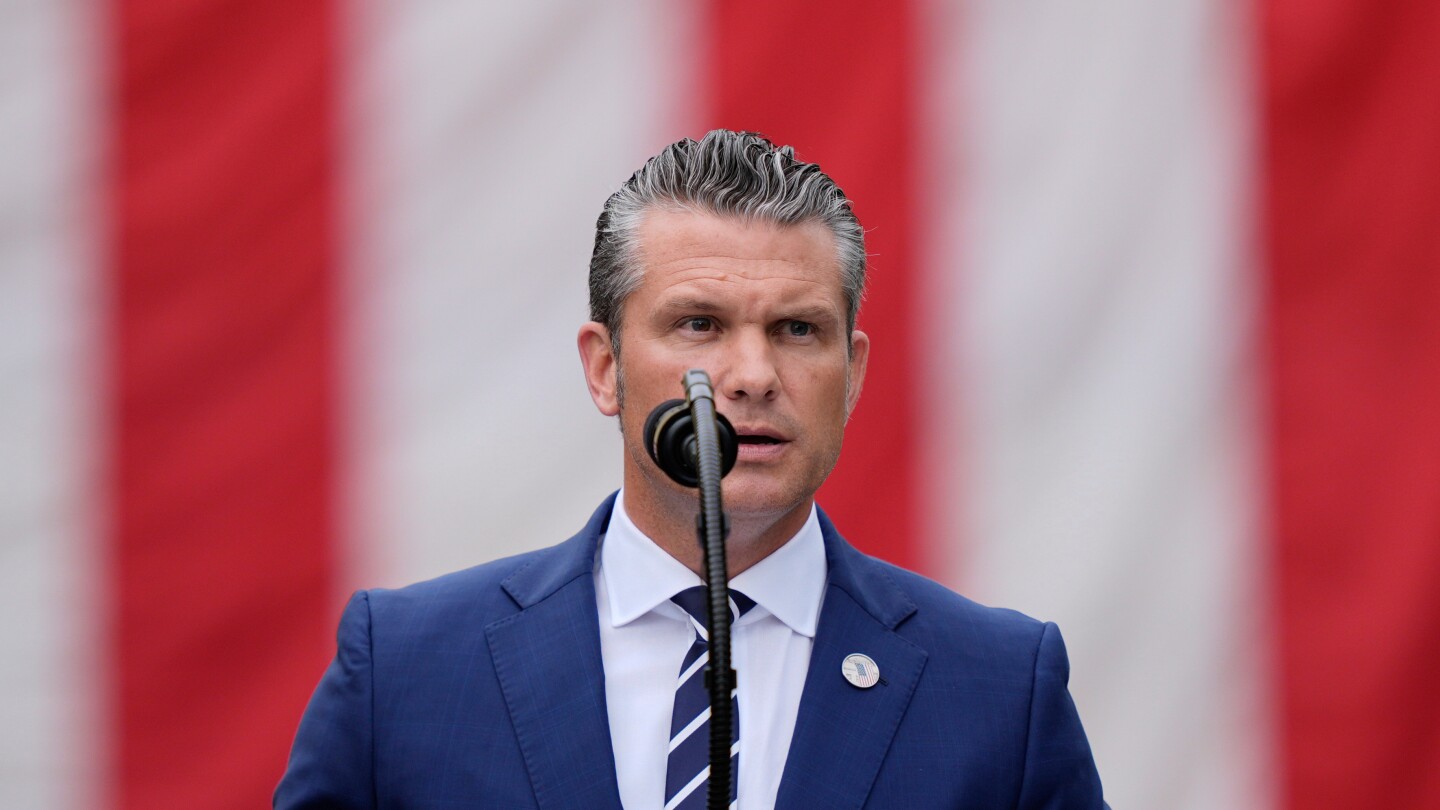WASHINGTON (AP) — President Donald Trump and Defense Secretary Pete Hegseth plan to address hundreds of U.S. military officials in person Tuesday after the Pentagon suddenly asked top commanders from around the world to convene at a base in Virginia without publicly revealing the reason.
The gathering at the Marine Corps base in Quantico near Washington has fueled intense speculation about the purpose and value of summoning such a large number of generals and admirals to one place, with many stationed in more than a dozen countries that include conflict zones in the Middle East and elsewhere.
Meetings between top military brass and civilian leaders are nothing new. But experts say the scale of the gathering, the haste with which it was called and the mystery surrounding it are particularly unusual.
“The notion that the secretary is going to talk to the generals and give them his vision for running the department — and maybe also for strategy and organization — that’s perfectly reasonable,” said Mark Cancian, a senior adviser with the Center for Strategic and International Studies and a retired Marine colonel.
“What’s mystifying is why it’s on such short notice, why it’s in person and what else might be involved,” he said.
The uncertainty comes as the country faces a potential government shutdown this week and as Hegseth, who has hammered home a focus on lethality and what he calls the “warrior ethos,” has taken several unusual and unexplained actions, including ordering cuts to the number of general officers and firings of other top military leaders.
News about the abruptly scheduled meeting broke Thursday, and top Pentagon spokesman Sean Parnell confirmed it but declined to release further details.
Trump didn’t seem to know about it when he was asked by reporters during an Oval Office appearance later that day. The president said he’ll “be there if they want me, but why is that such a big deal?”
A White House official said Sunday that Trump also will speak at the gathering. The president told NBC News that he and Hegseth would be “talking about how well we’re doing militarily, talking about being in great shape, talking about a lot of good, positive things.”
Vice President JD Vance argued last week that the media had turned it into a “big story” and that it was “not particularly unusual that generals who report to” Hegseth are coming to speak with him.
Italian Adm. Giuseppe Cavo Dragone, the chair of NATO’s Military Committee, described the meeting as unusual and told reporters Saturday after a NATO meeting in Riga, Latvia, that “as far as my 49 years of service, I’ve never seen that before.”
The lack of detailed information has prompted many in Washington to speculate about the meeting’s focus. Whatever it is, Michael O’Hanlon of the Brookings Institution said he suspects there will be a dramatic element that may be “as important as any substantive element.”
“Just the sheer scale makes you wonder what kind of meaningful interaction can occur,” said O’Hanlon, Brookings’ director of research for foreign policy. “And therefore it smacks more of theatrics or of trying to impose than of trying to exchange views.”
Bryan Clark, a senior fellow and director of the Center for Defense Concepts and Technology at the Hudson Institute, said he expects the meeting to center on the Trump administration’s shift in defense policy. The U.S. military is expected to focus less on Europe and Asia and more on the Northern Hemisphere, a change that breaks with decades of precedent, he said.
Hegseth has championed the military’s role in securing the U.S.-Mexico border, deploying to American cities as part of Trump’s law enforcement surges, and carrying out strikes on boats in the Caribbean that the administration says targeted drug traffickers.
“I think they’re trying to set the tone, set the context, for these generals and admirals to say the strategy we have coming out is very different than what you’re used to — we need you to all be on board with it,” Clark said.
Video teleconferencing across the world is difficult because leaders are spread across time zones, Clark said. Forcing them to attend the meeting in person will drill the point home.
“It’s a way of demonstrating that this is important,” Clark said.
___
Associated Press writer Sylvie Corbet in Paris contributed to this report.
